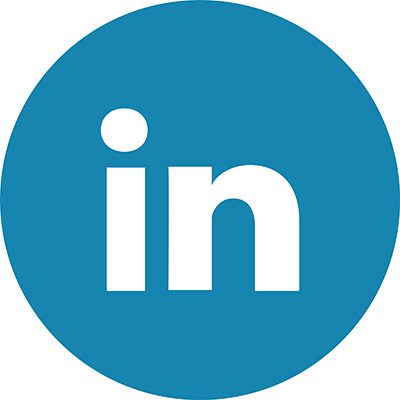Vous êtes ici : CHCSCFRInternationalRéseau metis
- Mis à jour le 12 décembre 2019
- Version PDF
École d'été : 'Communicating Politics. Media, Communication, Activism from the French Revolution to the present'
Le Centro interuniversitario di storia culturale (Université de Padoue), le Centre historique des sciences de la culture (Université de Lausanne) et le CHCSC organisent une école d'été en septembre prochain ouverte aux étudiants du Master au post-doctorat.
du 19 septembre 2016 au 24 septembre 2016
Dates de l'école d'été : du 19 au 24 septembre 2016
Padoue (Italie)
The Summer School in Communicating Politics. Media, Communication, Activism from the French Revolution to the present is held in Padua, Italy; it aims to create an international learning environment which will allow participants to be actively involved in workshops and seminars and to experience innovative methods of collaborative learning under the supervision of renowned academics and experts from Universities and Research Centres in Italy, Switzerland and France.
The program will give historical insight into the relationship between media and politics, examining the period from the French Revolution to the present, as well as different geographical areas. Participants will be introduced to various methodologies and approaches to the mediatisation of politics (and its implications), and to the transformation of political activism in relation to old and new media. The purpose of the Summer School is to examine how the study of these interrelationships can increase knowledge in Media History and Political History.
While the three promoting centres share a strong historical orientation with a focus on Cultural History and Cultural Studies, we welcome applications from other disciplines, including Art History, Sociology, Media Studies, and Political Science. The course challenges participants to commit themselves to a critical research approach, combining different fields of study, chronologies and geographical spaces, and fostering open dialogue among experts from a variety of scientific and academic backgrounds. This call for applications seeks original contributions to topics including, but not limited to, the following:
- mediatisation of politics and democratisation processes;
- intermediality issues (all kinds of media will be taken into account : photography, cinema, audovisual media, Internet, social networks…);
- redefinition of political actors and their actions (i.e. State and non-state institutional actors; individuals;local and global networks).
The Summer School in Communicating Politics. Media, Communication, Activism from the French revolution to the present is intended primarily for graduate and post-graduate students, PhD candidates, and young researchers having an academic or professional interest in the relationship between media and politics in historical perspective.
The Summer School consists of a six day course (36 hours); it is taught in English (and possibly in French) in two modules. The first part includes overview lectures, both theoretical and methodological. In the second part invited speakers will present a selection of case studies and the most recent research results in the field. The program will include field trips to sites of particular interest (for example the Pre-cinema Museum, Collection Zotti Minici). Successful applicants will be expected to actively participate in the seminars, discussions and laboratories, based on their own experience. Based on regular attendance of the course, students will be awarded two ECTS credits.
> Télécharger l'appel [PDF - 223 Ko]
[style3;PROGRAMME OF LECTURES]
Monday 19th September 2016
9.00 (*) – 11.00: Participants welcome and registration | (*) On the first day of lectures classes exceptionally begin at 8.45 a.m.
Introductory Lectures : Jean Claude YON, Le théâtre, une affaire politique en France au XIXe siècle | Carlotta SORBA, Theater, theatricality and politics in XIX century Europe.
11.00 – 11.30: BREAK
11.30 – 13.00: Reading groups: The Media System in the Long XIX Century.
13.00 – 14.30: LUNCH
14.30 – 16.00: Case Studies and Laboratory with Alessio PETRIZZO and Elena BACCHIN | Giulio TATASCIORE, La terra promessa dei briganti. Storia di un immaginario (1782-1876) | Fabiana LICCIARDI, Echi nei Theater-Kino-Varieté di un confine in guerra: Trieste 1914-1918.
16.00 – 16.30: BREAK
16.30 - 18.00: Visit to the University historic building Palazzo Bo and its Anatomical Theatre.
Tuesday 20th September 2016
9.00 – 11.00: Introductory Lectures : François VALLOTTON, Edition et engagement politique : cartographie d’un champ de recherche | Philippe KAENEL, Society on the move : an Iconology of fin-de-siècle urban wandering (as seen by Jules Adler and Th.-A. Steinlen).
11.00 – 11.30: BREAK
11.30 – 13.00: Reading groups: The Media System in the Long XIX Century.
13.00 – 14.30: LUNCH
14.30 – 16.00: Case Studies and Laboratory with Gian Luca FRUCI and Sandro MORACHIOLI | Pol DALMAU PALET, Press and Politics in Modern Spain. The case of the Godó family and the founding of La Vanguardia | Giulio ARGENIO, Mass Media in American Science Fiction Magazines: the Case of “Galaxy Science Fiction”.
16.00 – 16.30: BREAK
16.30 - 18.00: Katarzyna MATUL, La légitimation culturelle de l’affiche après 1945 | Jessica Lynn HARRIS, Exporting Mrs. Consumer: The American Woman in Italian Culture, 1945-1975.
Wednesday 21st September 2016
9.00 - 13.00: WORKSHOP: Political objects in Nineteenth-Century Europe | Chair: Enrico FRANCIA | Speakers: Rolf REICHARDT, Gianenrico BERNASCONI, Roberto BALZANI, Maria LOUSADA.
13.00 – 14.30: LUNCH.
14.30 - 18.00: Visit to the Museum of precinema and the Botanical Garden.
Thursday 22nd September 2016
9.00 – 11.00: Introductory Lectures : Caroline MOINE, Ecrire l’histoire des festivals internationaux de cinéma : au coeur des relations entre cinéma et politique | Alberto Mario BANTI, Rock narratives and politics.
11.00 – 11.30: BREAK
11.30 – 13.00: Cinema, Archives and Sources Chair: Alessandro FACCIOLI | Speakers: Michela ZEGNA, La Cineteca del Comune di Bologna | Paolo SIMONI, L’Archivio Nazionale dei film di famiglia.
13.00 – 14.30: LUNCH
14.30 – 16.00: Case Studies and Laboratory with Alessandro FACCIOLI, Damiano GAROFALO | Boris RUZIC, The Gaze Behind the Screen: Perception of Images in Media Texts | Dunja JELENKOVIC, The Cultural and Political History of the Yugoslav Documentary and Short Film Festival 1954-2004. From Yugoslav Socialism to Serbian Nationalism.
16.00 – 16.30: BREAK
16.30 - 18.00: Johanna AMAR, La médiatisation des premiers festivals de musique pop français et italiens en 1970 : représenter les cultures contestataires | Ivan PAGLIARO, Il PCI e la popular music. Ascesa e declino del partito pedagogo, 1943-1991.
Friday 23rd September 2016
9.00 – 11.00: Introductory Lectures : François ROBINET, Les interventions militaires françaises en Afrique (1994-2014) : des usages stratégiques des narrations médiatiques | Ferdinando FASCE, As if he were a patent medicine. The Rise and Development of Political Consulting in Twentieth Century U.S.
11.00 – 11.30: BREAK
11.30 – 13.00: Radio and Television Sources Chair: Caroline MOINE | Speakers: Nelly VALSANGIACOMO, Sources radiotélévisuelle pour l'histoire contemporaine: le cas des migrations | Raffaela PERIN, Sources pour une histoire de Radio Vatican dans la Seconde Guerre Mondiale.
13.00 – 14.30: LUNCH
14.30 – 16.00: Case Studies and Laboratory with Damiano GAROFALO, Federico MAZZINI | Alexander GOLOVLEV, Comparative analysis of Soviet and French musical promotion in occupied Austria after World War II | Ascanio CECCO Les expositions organisées par l’administration américaine en Europe, entre 1949 et 1952.
16.00 – 16.30: BREAK
16.30 - 18.00: Cyril MICHAUD, Le Réarmement moral en Suisse (1945-1965) : implantation, réseau et militance d'un mouvement politico-religieux anticommuniste | Christophe KEROSLIAN, Etude sur l’évolution des stratégies communicationnelles du P.C.F. à la fin des années 1960.
Saturday 24th September 2016
9.00 – 11.00: Case Studies and Laboratory on Collective memory and media with Mirco CARRATTIERI | Costanza CALABRETTA, Rivoluzione pacifica e Unità. Celebrazioni nella Germania riunificata (1990-2014).
11.00 – 11.30: BREAK
11.30 - 14.30: Franziska KOLS, War crimes in the collective memory. The trials for nazi massacres in Italy after 1994 from a German-Italian perspective | Maria Luisa MIRAGLIA, Politiche di segregazione tra Kosovo e Sud Africa | Students present their contribution to a Summer School blog | Award of diplomas.
The program will give historical insight into the relationship between media and politics, examining the period from the French Revolution to the present, as well as different geographical areas. Participants will be introduced to various methodologies and approaches to the mediatisation of politics (and its implications), and to the transformation of political activism in relation to old and new media. The purpose of the Summer School is to examine how the study of these interrelationships can increase knowledge in Media History and Political History.
While the three promoting centres share a strong historical orientation with a focus on Cultural History and Cultural Studies, we welcome applications from other disciplines, including Art History, Sociology, Media Studies, and Political Science. The course challenges participants to commit themselves to a critical research approach, combining different fields of study, chronologies and geographical spaces, and fostering open dialogue among experts from a variety of scientific and academic backgrounds. This call for applications seeks original contributions to topics including, but not limited to, the following:
- mediatisation of politics and democratisation processes;
- intermediality issues (all kinds of media will be taken into account : photography, cinema, audovisual media, Internet, social networks…);
- redefinition of political actors and their actions (i.e. State and non-state institutional actors; individuals;local and global networks).
The Summer School in Communicating Politics. Media, Communication, Activism from the French revolution to the present is intended primarily for graduate and post-graduate students, PhD candidates, and young researchers having an academic or professional interest in the relationship between media and politics in historical perspective.
The Summer School consists of a six day course (36 hours); it is taught in English (and possibly in French) in two modules. The first part includes overview lectures, both theoretical and methodological. In the second part invited speakers will present a selection of case studies and the most recent research results in the field. The program will include field trips to sites of particular interest (for example the Pre-cinema Museum, Collection Zotti Minici). Successful applicants will be expected to actively participate in the seminars, discussions and laboratories, based on their own experience. Based on regular attendance of the course, students will be awarded two ECTS credits.
> Télécharger l'appel [PDF - 223 Ko]
[style3;PROGRAMME OF LECTURES]
Monday 19th September 2016
9.00 (*) – 11.00: Participants welcome and registration | (*) On the first day of lectures classes exceptionally begin at 8.45 a.m.
Introductory Lectures : Jean Claude YON, Le théâtre, une affaire politique en France au XIXe siècle | Carlotta SORBA, Theater, theatricality and politics in XIX century Europe.
11.00 – 11.30: BREAK
11.30 – 13.00: Reading groups: The Media System in the Long XIX Century.
13.00 – 14.30: LUNCH
14.30 – 16.00: Case Studies and Laboratory with Alessio PETRIZZO and Elena BACCHIN | Giulio TATASCIORE, La terra promessa dei briganti. Storia di un immaginario (1782-1876) | Fabiana LICCIARDI, Echi nei Theater-Kino-Varieté di un confine in guerra: Trieste 1914-1918.
16.00 – 16.30: BREAK
16.30 - 18.00: Visit to the University historic building Palazzo Bo and its Anatomical Theatre.
Tuesday 20th September 2016
9.00 – 11.00: Introductory Lectures : François VALLOTTON, Edition et engagement politique : cartographie d’un champ de recherche | Philippe KAENEL, Society on the move : an Iconology of fin-de-siècle urban wandering (as seen by Jules Adler and Th.-A. Steinlen).
11.00 – 11.30: BREAK
11.30 – 13.00: Reading groups: The Media System in the Long XIX Century.
13.00 – 14.30: LUNCH
14.30 – 16.00: Case Studies and Laboratory with Gian Luca FRUCI and Sandro MORACHIOLI | Pol DALMAU PALET, Press and Politics in Modern Spain. The case of the Godó family and the founding of La Vanguardia | Giulio ARGENIO, Mass Media in American Science Fiction Magazines: the Case of “Galaxy Science Fiction”.
16.00 – 16.30: BREAK
16.30 - 18.00: Katarzyna MATUL, La légitimation culturelle de l’affiche après 1945 | Jessica Lynn HARRIS, Exporting Mrs. Consumer: The American Woman in Italian Culture, 1945-1975.
Wednesday 21st September 2016
9.00 - 13.00: WORKSHOP: Political objects in Nineteenth-Century Europe | Chair: Enrico FRANCIA | Speakers: Rolf REICHARDT, Gianenrico BERNASCONI, Roberto BALZANI, Maria LOUSADA.
13.00 – 14.30: LUNCH.
14.30 - 18.00: Visit to the Museum of precinema and the Botanical Garden.
Thursday 22nd September 2016
9.00 – 11.00: Introductory Lectures : Caroline MOINE, Ecrire l’histoire des festivals internationaux de cinéma : au coeur des relations entre cinéma et politique | Alberto Mario BANTI, Rock narratives and politics.
11.00 – 11.30: BREAK
11.30 – 13.00: Cinema, Archives and Sources Chair: Alessandro FACCIOLI | Speakers: Michela ZEGNA, La Cineteca del Comune di Bologna | Paolo SIMONI, L’Archivio Nazionale dei film di famiglia.
13.00 – 14.30: LUNCH
14.30 – 16.00: Case Studies and Laboratory with Alessandro FACCIOLI, Damiano GAROFALO | Boris RUZIC, The Gaze Behind the Screen: Perception of Images in Media Texts | Dunja JELENKOVIC, The Cultural and Political History of the Yugoslav Documentary and Short Film Festival 1954-2004. From Yugoslav Socialism to Serbian Nationalism.
16.00 – 16.30: BREAK
16.30 - 18.00: Johanna AMAR, La médiatisation des premiers festivals de musique pop français et italiens en 1970 : représenter les cultures contestataires | Ivan PAGLIARO, Il PCI e la popular music. Ascesa e declino del partito pedagogo, 1943-1991.
Friday 23rd September 2016
9.00 – 11.00: Introductory Lectures : François ROBINET, Les interventions militaires françaises en Afrique (1994-2014) : des usages stratégiques des narrations médiatiques | Ferdinando FASCE, As if he were a patent medicine. The Rise and Development of Political Consulting in Twentieth Century U.S.
11.00 – 11.30: BREAK
11.30 – 13.00: Radio and Television Sources Chair: Caroline MOINE | Speakers: Nelly VALSANGIACOMO, Sources radiotélévisuelle pour l'histoire contemporaine: le cas des migrations | Raffaela PERIN, Sources pour une histoire de Radio Vatican dans la Seconde Guerre Mondiale.
13.00 – 14.30: LUNCH
14.30 – 16.00: Case Studies and Laboratory with Damiano GAROFALO, Federico MAZZINI | Alexander GOLOVLEV, Comparative analysis of Soviet and French musical promotion in occupied Austria after World War II | Ascanio CECCO Les expositions organisées par l’administration américaine en Europe, entre 1949 et 1952.
16.00 – 16.30: BREAK
16.30 - 18.00: Cyril MICHAUD, Le Réarmement moral en Suisse (1945-1965) : implantation, réseau et militance d'un mouvement politico-religieux anticommuniste | Christophe KEROSLIAN, Etude sur l’évolution des stratégies communicationnelles du P.C.F. à la fin des années 1960.
Saturday 24th September 2016
9.00 – 11.00: Case Studies and Laboratory on Collective memory and media with Mirco CARRATTIERI | Costanza CALABRETTA, Rivoluzione pacifica e Unità. Celebrazioni nella Germania riunificata (1990-2014).
11.00 – 11.30: BREAK
11.30 - 14.30: Franziska KOLS, War crimes in the collective memory. The trials for nazi massacres in Italy after 1994 from a German-Italian perspective | Maria Luisa MIRAGLIA, Politiche di segregazione tra Kosovo e Sud Africa | Students present their contribution to a Summer School blog | Award of diplomas.
Informations complémentaires
 Promoting Institutions:
Promoting Institutions: > Centro interuniversitario di storia culturale (CSC)
Dipartimento di Scienze Storiche, Geografiche e dell’Antichità
Università di Padova, Italy (UNIPD)
> Centre d’histoire culturelle des sociétés contemporaines (CHCSC)
Université de Versailles Saint-Quentin-en-Yvelines, France (UVSQ)
> Centre des sciences historiques de la culture (SHC)
Université de Lausanne, Swiss (UNIL)
 Directors of the School:
Directors of the School: > Carlotta Sorba
Università di Padova, Italie
> Jean Claude Yon, Caroline Moine
Université de Versailles Saint-Quentin-en-Yveline, France (UVSQ)
> François Vallotton
Université de Lausanne, Swiss (UNIL)
 Guest speakers:
Guest speakers: Alberto Mario Banti, Università di Pisa
Ferdinando Fasce, Università di Genova
Enrico Francia, Università di Padova
Gianluca Fruci, Università di Bari
Damiano Garofalo, Università di Padova
Philippe Kaenel, Université de Lausanne
Federico Mazzini, Università di Padova
Alessio Petrizzo, Università di Padova, IEA Lyon
François Robinet, Université Versailles Saint Quentin
Nelly Valsangiacomo, Université de Lausanne
 Secretariat:
Secretariat: Francesca Mura - summerschool.dissgea@unipd.it
Contact :
Caroline Moine : caroline.moine@uvsq.fr







